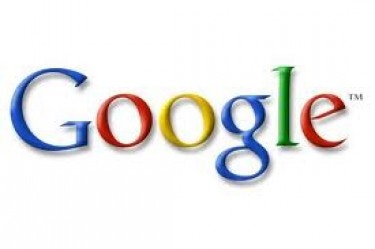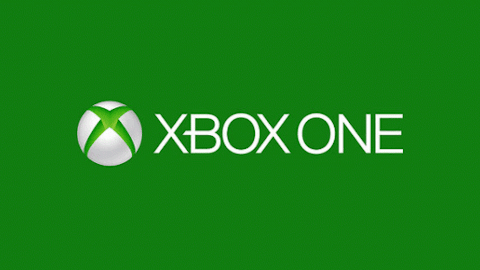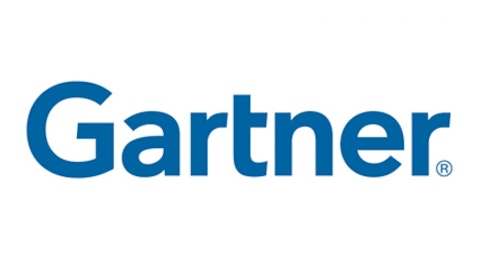This article will discuss the search engine market dominance of Google Inc (NASDAQ:GOOG) and what I find to be its biggest threats. I think the biggest of these threats is something that Google should watch out for as it looks to provide momentum for a shift in users that could lead to a loss of market share.
I am old enough to remember the days when Yahoo! Inc. (NASDAQ:YHOO) ruled the land of the search engines. Then one day Google came along and grabbed that market, and has never looked back. Since then the company has since diversified and has expanded into the smartphone market with Android, and now makes affordable laptops as well. These factors are what I believe will lead Google Inc (NASDAQ:GOOG) forward, and I believe the company is losing sight of what propelled its search engine to become the best in the world.
A large milestone for Google was its acquisition of Youtube, which it has since integrated into its portfolio. Youtube compliments the search engine nicely, as videos are integrated into search and users going right to Youtube can be reached by Google Inc (NASDAQ:GOOG)’s Adsense advertising.
Google’s Changes
Over the past few years, Google Inc (NASDAQ:GOOG) has made some revisions to its search engine, as well as creating some products that can be viewed as not so user-friendly. For one, Youtube originally had its embedded videos on outside websites in a manner that was much more rewarding to the site owners. The video codes were transferable in a much wider capacity, though now they are not as easy to embed. Furthermore, the referring websites that provided the most views to the videos used to receive a backlink from Youtube, which is no longer the case. This is one of the examples where Google has made it more difficult for website owners to capitalize from its search results, which in turn gives part of its customer base reason to look elsewhere for opportunities.
Another feature that Google Inc (NASDAQ:GOOG) has changed that has limited exposure for websites is that its Shopping product now only accepts paid submissions for inclusion. Gone are the days when site owners could freely submit products for inclusion.
Having friendlier policies in these regards are large factors, in my opinion, as to how the company was able to become so dominant in the market.
Changes like these show that the company is no longer reaching its market in the same way, though it may make perfect business sense. It provides competitors such as Facebook Inc (NASDAQ:FB) and Microsoft Corporation (NASDAQ:MSFT) an opportunity to reach more users.
Bing Wants More Market Share
Microsoft Corporation (NASDAQ:MSFT)’s Bing search engine has a current television advertising campaign in an attempt to take search engine market share away from Google. In my opinion, the search engine layout of both companies is similar, though Google Inc (NASDAQ:GOOG) trumps Bing in the quality of results based on selection.
An aggressive advertising campaign to steal market share is more along the lines of uncharted waters, and it definitely is a strong attempt to sway users to go right to Bing instead of the usual Google.
So far, it is working. In May it was announced that Bing hit an all-time high for market share, surpassing 17% of the market, while Google Inc (NASDAQ:GOOG)’s market share slipped to about 66%.
Its online services division, which houses Bing and its advertising service, improved its 9 month results for the quarter that ended in March of 2013 by 12% compared to the nine month period ending in March of 2012. Its revenue of $2.3 billion for those nine months makes up about 4% of its total revenue company-wide.
Facebook Presents the Biggest Threat
Facebook Inc (NASDAQ:FB) poses the biggest threat to Google’s search engine market share. The company receives a huge amount of monthly traffic, and it has a search engine integrated into its search results.
For the quarter ending in March of 2013, Facebook has $1.25 billion in ad revenue, which made up 85% of total revenue. More importantly, this represented a 43% increase from the quarter ending in March of 2012.
In comparison, Google Inc (NASDAQ:GOOG)’s advertising-specific revenue for the quarter ending in March of 2013 was $11.9 billion. This represented an approximate 15% increase compared to the quarter ending in March of 2013. This shows us that Facebook Inc (NASDAQ:FB) is growing ad revenue faster, and it still is perfecting its evolving methods.
Facebook offers its users the ability to search for things and find web results, but also to find groups of users to interact with on its groups with shared interests. For example, if a customer wants to buy a new computer, it can join an Apple group on Facebook Inc (NASDAQ:FB) and find thousands of users to bounce ideas off of in addition to products on search results.
Facebook has many of these groups created, but detailed groups for specific types of products and services are still in an evolving stage. Companies have begun to use Facebook Inc (NASDAQ:FB) to advertise, and Facebook also benefits from the user interaction in groups, which is something an ordinary search engine does not have.
There is a vast opportunity for Facebook Inc (NASDAQ:FB) if user group interaction grows, and there remains large potential for users to shift their search habits to going on Facebook to search for something and finding groups, web results, and friends with ideas on products. In doing my own research, there remains a large amount of untapped product details on there as far as group ideas go, and it is a market waiting to be explored. Groups are free for users to create and interact in, and many have thousands of users that log in frequently. If the user base follows to that untapped growth, Facebook Inc (NASDAQ:FB) could be a sleeping giant in the search engine market industry.
Another new feature that Facebook has introduced is Graph Seach. This allows users to look up anything they have shared, in addition to anything their friends have shared. This is another feature that makes search more personable, and potentially more profitable as a targeted way to reach customeers with similar interests.
Conclusion
For a strong, not so traditional play in search engine marketing, I view Facebook Inc (NASDAQ:FB) as a great choice.
I feel that if there is a shift in the search engine market Facebook stands to gain the most from it.
Anthony Parsons has no position in any stocks mentioned. The Motley Fool recommends Facebook and Google. The Motley Fool owns shares of Facebook Inc (NASDAQ:FB), Google Inc (NASDAQ:GOOG), and Microsoft Corporation (NASDAQ:MSFT).
The article Threats to Google’s Search Engine Dominance originally appeared on Fool.com.
Anthony is a member of The Motley Fool Blog Network — entries represent the personal opinion of the blogger and are not formally edited.
Copyright © 1995 – 2013 The Motley Fool, LLC. All rights reserved. The Motley Fool has a disclosure policy.






